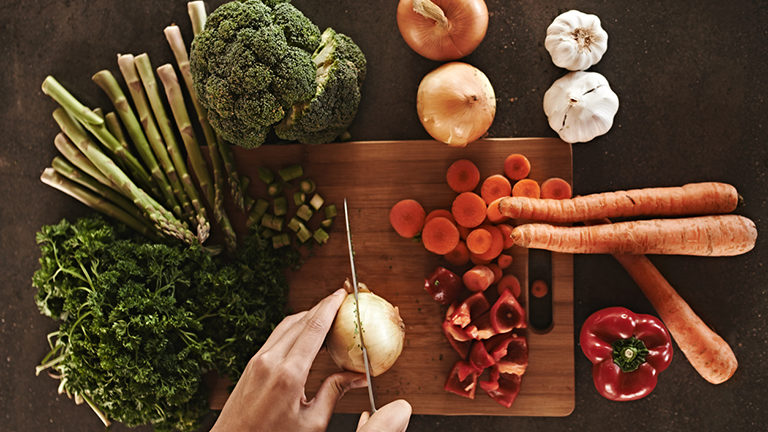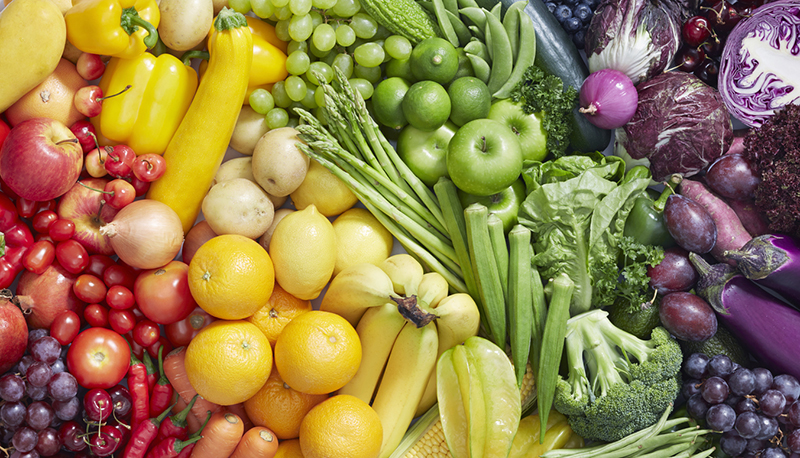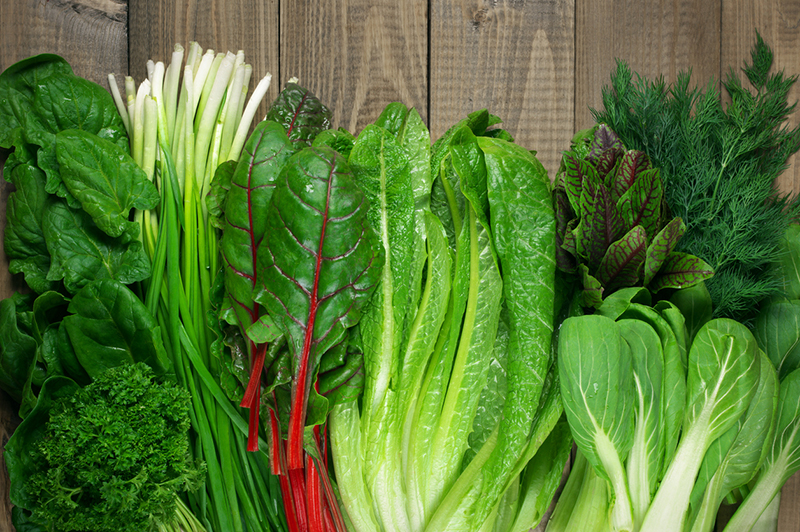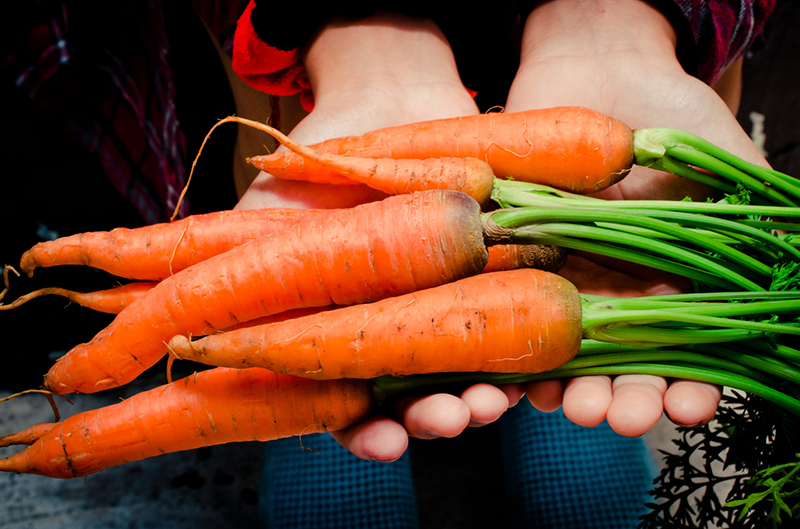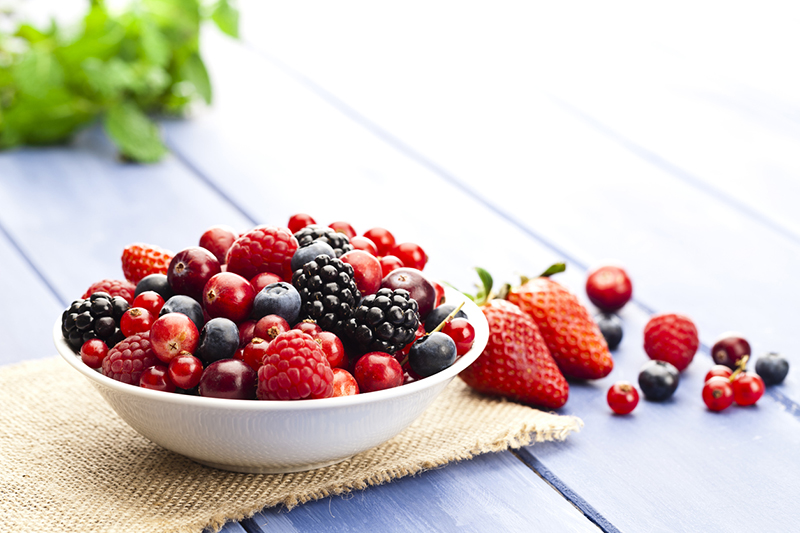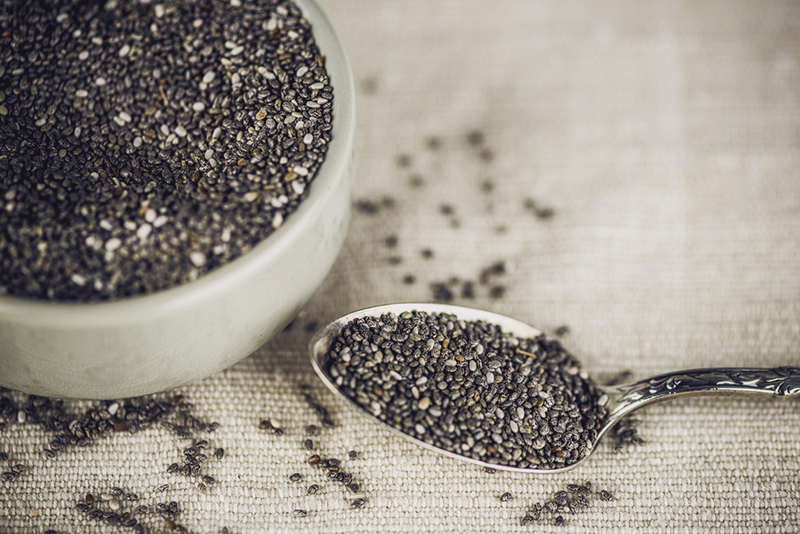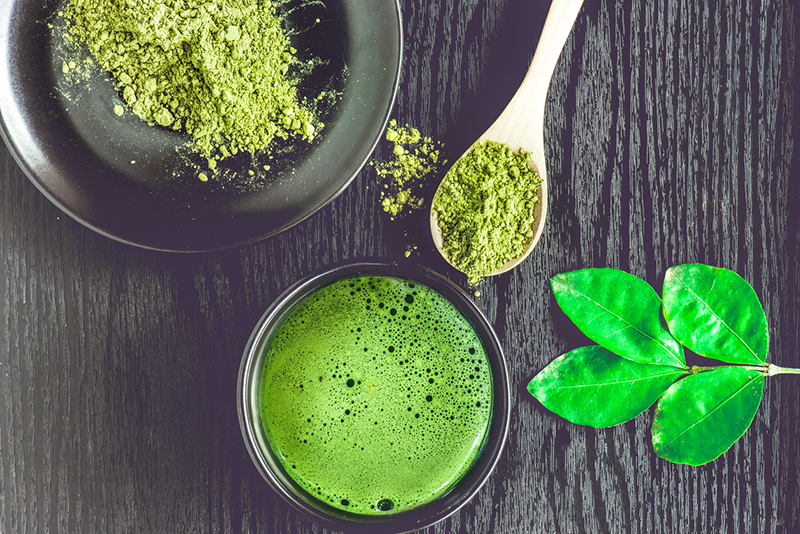A new study shows that obesity related cancers have risen – even in millennials. Our diets may have the potential to help prevent cancer, along with a healthy lifestyle. Healthista’s Nutrition Director, Rick Hay, explains the foods associated with cancer prevention
A study by the American Cancer Society today published findings in The Lancet Public Health showing that cancers linked to obesity are rising at a faster rate in younger generations – the millennials (those in their 20s and 30s) – than in older people.
Findings show that the rates of six out of 12 obesity-related cancers including, colorectal, uterine, gallbladder, kidney, pancreatic and multiple myeloma (blood cancer) all increased, particularly in those under the age of 50.
This rise in obesity may be down to the rapid rise in obesity in the last few decades with younger generations worldwide experiencing an earlier and longer exposure to the dangers of extra weight.
Healthista’s Nutritional Director Rick Hay has given us some food options to add to our diets that might be able to keep cancer at bay or work together with other cancer treatments to fight the disease.
A vegetable rich diet in general
‘It’s the green, red, orange, yellow and purple brightly coloured foods that can assist the body with its natural defences,’ says Hay. ‘Essentially, the more bright stains that foods leave on your hands when you are prepping them the better.’
These brightly coloured foods help to boost the body’s immune system naturally, which in turn might be able to help fight off the mutant cells of cancer. When cancer strikes, it’s a single cell’s mutation that accelerates in division within the body and kills other healthy cells. This mutated cell division begins to form into lumps or masses in the body that can eventually become tumours.
According to Hay and studies that we’ve found, changing simple aspects of your diet can potentially decrease your chances of getting certain cancers. ‘One of the easiest things you can do in order to start changing your diet is to include more vegan and vegetarian meals,’ says Hay.
These types of diets contain meal options that are generally higher in fibre and nutrients, which will give the body a consistent and denser amount of the vitamins and minerals it needs. Vegetable rich diets will also benefit you because they are rich is digestive enzymes that jump start your stomach’s digestive process, as well as keeping the gut healthy with probiotics.
‘Beta carotene, selenium, vitamin A, C and E can protect against chronic disease,’ says Hay. According to the Institute of Medicine (US) Panel on Dietry Antioxidants and Related Compounds, these elements (excluding vitamin A, as it’s not mentioned in the report) are defined as ‘dietary antioxidants’ that are also ‘multi functional.’ Specifically with cancer, ‘evidence indicates that consuming diets rich in fruits and vegetables is associated with both a decrease in oxidative damage to DNA and a lower risk of a number of common cancers.’
Being overweight or obese is also a clear risk factor of cancer. According to Cancer Research UK, ‘more than 1 in 20 cancer cases in the UK are linked to being overweight or obese.’ It also mentions that it’s the biggest cause of cancer other than smoking. Diets that consist of overly processed foods that are also high in sugars should be avoided, especially those of processed meat suggests Hay.
If one really wants to make the most of a healthier changed diet, Hay argues that stress, smoking and ‘other negative lifestyle choices’ should be addressed. He also mentions to never underestimate the benefits of exercise when adding just a few simple tweaks to your diet.
Leafy green and cruciferous vegetables
‘Kale, spinach, watercress and other leafy greens are rich in immune boosting nutrients like vitamin C and beta-carotene,’ says Hay. ‘Cruciferous vegetables that include broccoli, cauliflower, brussel sprouts and cabbage are natural sources of the glucosinolates and isothiocyanates.’ These compounds act as protective antioxidants and an anti-inflammatory elements proven to eliminate chemicals and toxins within the body and ‘inhibit the development of chemically-induced cancers of the lung, liver, esophagus, stomach, small intestine, colon and breast,’ reports the Pauling Institute of Oregon State University.
‘These greens are also high in fibre to help with colon and gut and cardiovascular health – important as the incidence of colon cancer is on the increase,’ says Hay. Cruciferous vegetables help the body’s natural detoxing and promotes a healthy bowel system.
‘They are also rich in glutathione which is a potent free radical scavenger. The antioxidant king which is glutathione may also offer protection to DNA structure.’ This is important because certain types of cancer cells limit cell growth in the body by limiting DNA repairs that should happen almost automatically when a string of DNA is damaged.
According to Cancer Research UK, this has been identified in bowel cancer where damaged DNA repair genes have not been repaired due to malfunctioning repair proteins. So, adding an emphasis on cruciferous vegetables to your diet may help protect you from bowel cancer by protecting your DNA repair genes.
Unfortunately, the study of glucosinolates and isothiocyanates in cruciferous vegetables and their effects on the human body have been somewhat limited to animal studies, and have shown to have varying evidence in controlled environments of human subjects. But according to the Pauling Institute, observational studies on humans have shown some evidence that increased intakes of cruciferous vegetables can help.
Onions and Garlic
Onions and garlic are also both rich in glutathione, which naturally detoxes the body. ‘Garlic helps regulate blood sugar levels with low insulin levels being desirable to reduce cancer risk,’ says Hay. ‘They both will also assist if metabolic syndrome is a problem and contain diallyl disulfide, which may help to protect against certain cancers.’ The National Cancer Institute reports that data from seven population studies have shown ‘that the higher the amount of raw and cooked garlic consumed, the lower the risk of stomach and colorectal cancer,’ as well as intestinal cancer.
It goes on to explain that garlic has the ‘ability to block the formation of cancer-causing substances, enhance DNA repair or induce cell death.’ The National Cancer Institute actually recognises garlic as one of many vegetables that can potentially fight off cancer.
As for onions, a study reported by Science Daily says that ‘Ontario-grown red onions are the most effective at killing colon and breast cancer cells compared to other types of onions.’ They have higher amounts of quercetin and anthocyanin than those grown outside of Canada, which creates an unfavourable environment for cancer cells and keeps them from communicing to other cells in the body. This keeps the cancer cells from growing and duplicating.
Orange or yellow coloured fruits and vegetables
‘The brightly coloured pigments found in orange and yellow plant foods are packed full of the super antioxidants carotenoids like alpha-carotene, beta-carotene, lutein and lycopene. All of which have properties that may protect the immune system,’ says Hay.
Carrots contain falcarinol that works as a natural pesticide in the body. A study reported in the Journal of Agricultural and Food Chemistry in 2009, proved that ‘falcarindiol (falcorinol) added to normal and cancer cells showed a synergistic response for the inhibition of cell growth.’ In a sense, the carrots can fight against existing cancer cells to potentially keep them from growing and duplicating.
‘Together with carrots, sweet potatoes, squash, pumpkin and citrus fruits should be liberally included in recipes,’ suggests Hay.
Red coloured fruits and vegetables
Tomatoes are especially important when it comes to the fight against prostate cancer. They contain the antioxidant lycopene. This is what creates the pigment red colour of tomatoes, but also can be found in apricots, guavas and watermelon. ‘Lycopene is broken down into a number of metabolites that are thought to have various biological effects, including antioxidant capabilities,’ reports the National Cancer Institute. Similar to that of the cruciferous vegetables. Lycopene can help to reduce cell division in prostate cancer.
Animal studies on mice have also suggested that lycopene can delay the development or recurrence of skin, breast, lung, and liver cancer. However, human based trials haven’t shown a consistency in results. Therefore, these foods are merely a suggestion and requires more evidence to make it a proven cancer fighting food.
Hay suggests tomato paste together with olive oil work well when adding more lycopene to diet.
On to red fruits, ‘berries contain gallic acid to boost natural immune function and are rich in protective proanthocyanidins, as well as being high in vitamin A and vitamin C,’ says Hay. ‘They also have quercetin, zeaxanthin, lycopene and lutein as well as many other phytonutrients that can help the body fight off pathogens. They are a true superfood in their own right.’ These foods will benefit your overall health and keep the immune system ready to fight viruses or bacteria.
According to the study Protective Role of Dietary Berries in Cancer, consuming whole natural berries will also help with antioxidant and anti-inflammatory protection in the body. It reports that berries can delay the development or recurrence of cancer ‘primarily of the GI tract as well as breast and to a lesser degree of liver, prostate, pancreas and lung.’ Hay suggests a beetroot and berry juice or beetroot extract to provide the immune system a boost of antioxidants, especially good for when the system is compromised.
Medical News Today has also discussed the benefits of blueberries, cranberries, raspberries, and blackcurrants. Specifically, the cyanidin in wild bilberries, raspberries and cranberries works as a compound in the body to ‘reduce the activity of cancer-causing genes and boost the activity of cancer-stopping genes.’
Herbs and spices
‘Top of my herb and spice list is turmeric,’ says Hay. ‘The active ingredient is curcumin which is a key anti-inflammatory agent.’ According to Cancer Research UK, studies have shown that curcumin ‘seems to be able to kill cancer cells and prevent more from growing.’ This is because curcumin can modulate the growth of tumour cells by regulating cell pathways, which will selectively find the mutant cells and keep them from growing, a study published in the AAPS Journal found.
Cancer Research UK states that turmeric works best against breast, bowel, stomach and skin cancer cells. Hay suggests using turmeric with black pepper to enhance the body’s capability of absorption. It can also be used together with other thermogenic spices like chili, mustard, cayenne and ginger.
Fermented and probiotic foods
‘These are key to good digestive health, and help with nutrient absorption and probiotic levels,’ says Hay. ‘Good gut function is integral to any healthy diet. Without it, the gut’s key nutrients may be lost.’ This includes foods like sauerkraut, kefir, tempeh and miso. Science Magazine reported in 2017 of a study done between cancer patients that showed that our gut microbiome ‘helps determine whether tumours shrink when treated with immunotherapy drugs.’ The drugs include PD-1 inhibitors that block molecules on immune cells called T cells, which tumours use to shut down immune cells.
The research also reported that the good bacteria in our bodies helps the PD-1 inhibitor drugs by preparing our immune cells to receive the inhibitor. This means that by taking care of and having diversity of good bacteria in your gut, you can better prepare your body to fight against cancer if diagnosed. Hay suggests apple cider vinegar to support the health of your microbiome.
Nuts and seeds
‘Whilst on the topic of gut health, chia and linseeds provide fibre for digestive system support together with omega-3 fatty acids to help decrease inflammation,’ says Hay. ‘Keeping inflammatory processes dampened down have been at the cornerstone of diets made to help prevent cancer for decades as the inflammation process itself can make cancer proliferation easier.’
A study published in the Nutrition Reviews journal reported that dietary fibre can be found in almonds and walnuts, while oleic acid is plentiful in hazelnuts. These components are recognised by the medical world as cancer protective. The study also concluded that nut consumption can help with risk of colorectal, endometrial and pancreatic cancers.
‘Apricot kernels are controversial but a popular global cancer treatment,’ says Hay. ‘More research is needed but it’s thought that their potential cancer fighting properties come from the amygdalin, which is found in the kernel.’ This element can also be found in apples, cherries and peaches.
According to Medical News Today, the amygdalin in apricot kernels will become cyanide in the body, which is a potentially deadly chemical. Cyanide would kill cancer cells in the body, but it will also kill healthy cells. Consuming the kernels and pits of fruits is not recommended by research, as The Cochrane Library conducted a review of studies that proves this idea isn’t actually supported by data. Instead, be careful because consuming apricot kernels to fight cancer is merely just a fad.
Green tea
Green tea has proven time and time again to be helpful in many areas of health. Hay has reported of its benefits with boosting metabolism and promoting weight loss.
‘Green tea contains epigallocatechin-3-gallate, a protective compound shown to inhibit tumour invasion and angiogenesis,’ says Hay. ‘Matcha green tea contains the highest percentage of the polyphenolic compounds – catechin, gallocatechin and EGCG.’
According to the National Cancer Institute, the EGCG in matcha green tea ‘may protect cells from DNA damage’ because it’s own unstable chemical changes within the cell can protect the DNA from other cancer causing unstable molecules. Unfortunately, human studies have yet to completely prove green tea’s role in fighting cancer.
Cancer Research UK has reported on a few meta-analysis studies that suggest green tea might help with reducing the risk of mouth cancers, lung cancer and on bladder cancer development. But it also mentions that nothing is absolutely proven by human subject studies.
Mushrooms
‘Medicinal mushrooms contain the immune booster 1,3-beta-glucan,’ says Hay. These enzymes are commonly found in mushroom varities such as reishi, shiitake, maitake and cordyceps. ‘These have been used traditionally to modulate the immune system.’
These mushrooms may help the immune system because of their antioxidant, prebiotic and anti-inflammatory components, reported a study published by 3 Biotech. ‘Mushrooms are known to complement chemotherapy and radiation therapy by countering the side-effects of cancer, such as nausea, bone marrow suppression, anemia, and lowered resistance.’ New companies like FineCo Ltd. are also now emerging to specialise in creating ‘anti-cancer formulations from medical mushrooms.’
‘Modern research is now finding that both the polysaccharides and beta glucans found within mushroom may indeed have these reported properties,’ says Hay. However, as medical mushrooms are still an emerging trend in relation to combating cancer, more research and studies are needed to fully prove their cancer-fighting capabilities.
Rick Hay is an Anti-Ageing and Fitness Nutritionist with many years clinical experience in nutrition, naturopathy, botanical medicine and iridology. He specializes in obesity treatment and weight management. He writes a regular Natural Health and Fitness Blog for Healthista. Find out more at rickhay.co.uk. Follow Rick on Twitter @rickhayuk
Read more
8 proven ways to prevent cancer
9 cancer signs you’re probably missing
My bloating turned out to be ovarian cancer – I was 30
9 metabolism boosting foods proven by science
15 easy mushroom recipes for a tasty antioxidant boost
Like this article? Sign up to our newsletter to get more articles like this delivered straight to your inbox.



